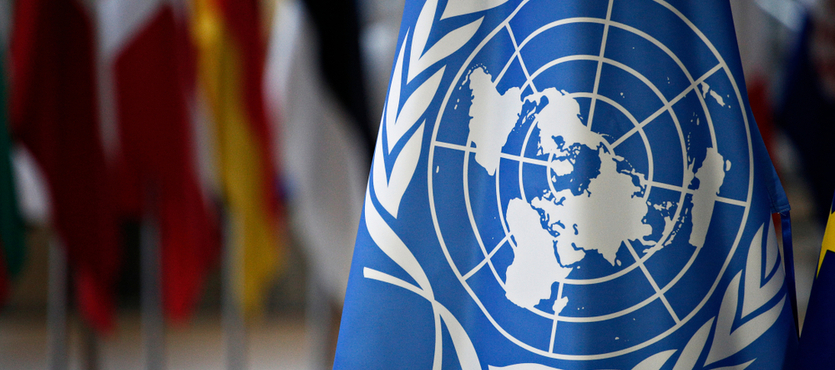After continued government inaction, the United Nations released a report which blamed police and government officials in Haiti for the massacre which killed about two dozen people.
About 5,000 people live in the La Saline neighborhood of Port-au-Prince. This sector is known for violent gang activity. In November 2018, according to the U.N. report, the National Police of Haiti (PNH) knew about a coming surge of gang violence, but did nothing to prevent it. Instead, armed gangs battled in the streets for about two days. The gangs executed 26 civilians. The youngest victim was 10 months old; the oldest victim was 72. Many bodies were burned or mutilated. Other illegal acts included gang rapes and looting.
The report did not specifically assess blame, but it concluded that there were “many concerns about human rights abuses against residents of La Saline and the alleged involvement of PNH agents and State officials.”
Understanding Haiti’s Current Situation
Shortly after the French subdued the natives and colonized Haiti in the 18th century, they turned it into a waystation for African slaves headed to the Ameican colonies and the young American republic. Due to the extreme racism of the time, high French officials wanted little to do with black-dominated Haiti, and the Paris government also deemed Haitians incapable of self-government. So, when the French were forced out, Haiti had no experienced administrators, no governmental infrastructure, and no history of self-determination.
While the French showed little interest in governing Haiti, they were very interested in its natural resources. Over the years, the French used the mercantile system in Haiti. This idea held that overseas colonies existed solely for the benefit of the mother country. So, when rebels expelled the French, the country had little in the way of money, especially after the French returned and extorted a very large ransom.
So, independent Haiti began as a politically unstable and poor nation. Little has changed over the past century and a half. In most international rankings, Haiti still ranks as one of the poorest and most despotic states in the Carribbean basin.
In stark contrast, the neighboring Dominican Republic, which occupies the eastern two-thirds of Hispaniola, is one of the most stable and prosperous Carribbean countries. Its economy is the largest in the region, and the capital Santo Domingo has over three million residents.
So, when disasters strike places like the Domincan Republic, the country can survive. But when these things affect places like Haiti, the country has a hard time getting off the canvas. Indeed, Haiti is still trying to recover from a devastating 2010 earthquake. That disaster is a distant memory in the United States, but many Haitians live with its effects every day.
The physical devastation made an already poor people even more destitute. And, years of a corrupt dictatorship made it difficult to get relief supplies where they were needed most.
Enter private military contractors. These highly-compensated individuals pump money into the local economy. And, their mere presence provides deterrence and stability. Contractors obviously cannot prevent all disasters, as the La Saline massacre clearly showed. But they can prevent a lot of them.
What Contractors do There
In many places around the world, contractors fill military and nonmilitary roles. These duties are clearly on display in Haiti.
All these years after the earthquake, contractors still provide security for supply distribution efforts. This job is not for U.S. servicemembers, and Haiti lacks a reliable force, like the American National Guard, which can help out in these situations.
Armed contractors also protect U.S. diplomats and other government workers in Haiti. That protection could include staffing a checkpoint, verifying identifications at doors, and following workers home after dark. Without a strong contractor presence, U.S. installations would be vulnerable to attack.
Contractors help in other areas as well. Due to the earthquake’s physical devastation, there are many construction projects on the to-do list. Because of the aforementioned government corruption, many of these projects are just now getting started.
American contractors provide much of the direction for these projects. Moreover, armed contractors protect the workers and prevent mobs from disrupting the work.
Injury Compensation Available
Haiti’s judicial system is as unreliable as its government. So, when contractors are injured in Haiti, they need somewhere to turn so they can obtain compensation for medical bills and lost wages. The Defense Base Act provides such a place.
U.S. lawmakers passed the Defense Base Act in 1941. Under this Department of Labor program, injured victims need not establish fault or negligence to get the compensation they need and deserve.
Most DBA cases begin with a written report of an illness or injury. Strict time deadlines apply. If the report is late or not in the proper form, the entire injury compensation claim could be at risk.
Next, there is usually a settlement conference between the victim’s attorney and the DBA insurance company attorney. A third-party mediator tried to facilitate a settlement based on the available medical evidence. Sometimes, this conference is successful. But many cases proceed to the next stage.
That stage is a trial-like hearing before an Administrative Law Judge. At this hearing, attorneys may introduce evidence, challenge the other side’s evidence, and make legal arguments. Therefore, victims have a very good chance of obtaining compensation at this point. Typically, all these benefits are retroactive to the date of injury.
For more information about available DBA benefits, contact Barnett, Lerner, Karsen, Frankel & Castro, P.A.

